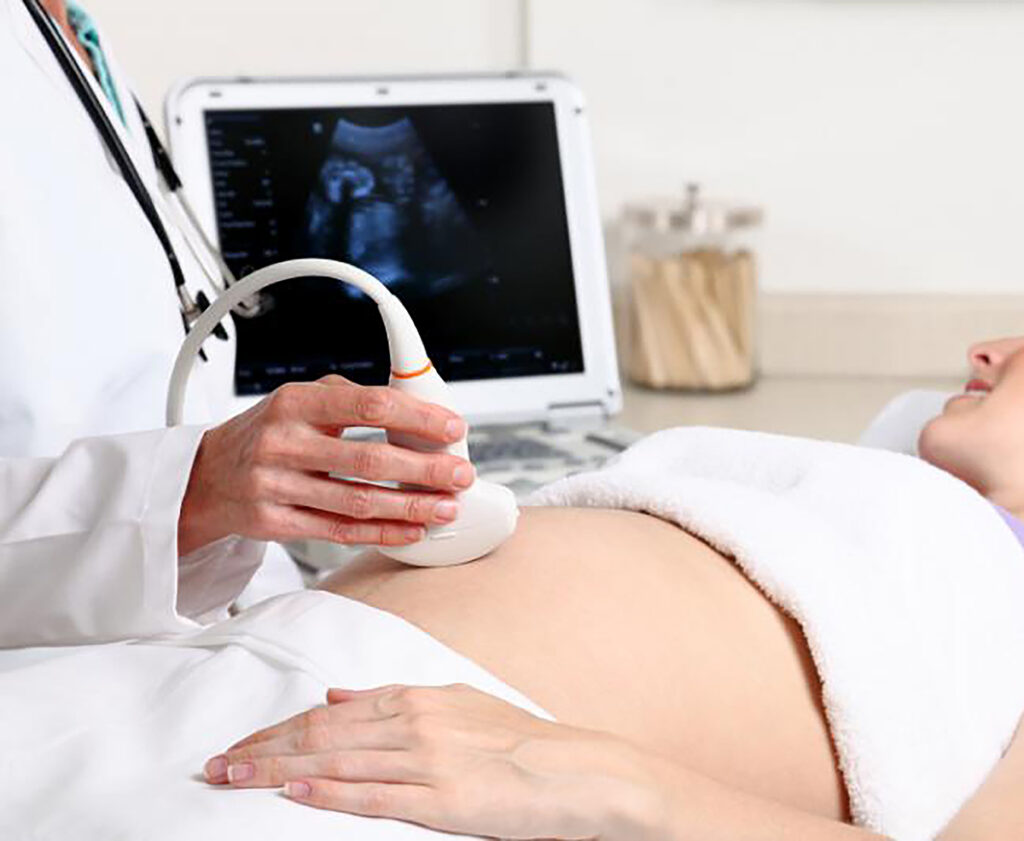Pregnancy is a time of excitement and anticipation, but it also comes with many questions, especially when it comes to medical procedures. One of the most common concerns expectant parents have is whether ultrasounds are safe during pregnancy. Since ultrasounds use sound waves to create images of the developing baby, some parents worry about potential risks. In this article, we’ll explore the safety of ultrasounds, how they work, their benefits, and any potential concerns.
What is an Ultrasound?
Ultrasound, also known as sonography, is a medical imaging technique that uses high-frequency sound waves to create real-time images of internal organs, tissues, and, in the case of pregnancy, the developing fetus. It is a non-invasive and painless procedure commonly used in prenatal care.
During an ultrasound, a technician (sonographer) applies a special gel to the abdomen and uses a handheld device called a transducer to send sound waves into the body. These waves bounce back and create an image of the fetus on a screen, allowing doctors to monitor the baby’s growth and development.
Why Are Ultrasounds Performed During Pregnancy?
Ultrasounds serve several essential purposes throughout pregnancy, including:
- Confirming Pregnancy – A first-trimester ultrasound can confirm a viable pregnancy and determine the baby’s gestational age.
- Monitoring Fetal Growth – Ultrasounds help track the baby’s size, weight, and development at different stages.
- Detecting Birth Defects – Certain congenital conditions can be identified through ultrasound imaging.
- Determining Baby’s Position – In later pregnancy stages, an ultrasound helps determine if the baby is head-down for delivery.
- Checking Amniotic Fluid Levels – Too much or too little amniotic fluid can indicate potential complications.
- Assessing Placental Health – The location and function of the placenta are essential for fetal nourishment.
- Guiding Medical Procedures – Ultrasounds assist in procedures like amniocentesis to ensure accuracy.
Is Ultrasound Safe for the Baby and Mother?
The safety of ultrasound during pregnancy has been extensively studied, and no known risks have been found when used appropriately. Here’s why ultrasounds are considered safe:
- Non-Ionizing Radiation: Unlike X-rays and CT scans, ultrasounds do not use ionizing radiation, which can be harmful to DNA.
- Decades of Use: Ultrasound technology has been in use for over 50 years with no confirmed long-term effects.
- Real-Time Imaging: Since the procedure provides live images, it allows doctors to assess the baby without invasive techniques.
- No Proven Harmful Effects: Studies have found no correlation between prenatal ultrasounds and birth defects, developmental delays, or pregnancy complications.
Types of Ultrasound During Pregnancy
There are different types of ultrasound used at various stages of pregnancy, including:
- Transabdominal Ultrasound – The most common type, where a transducer is moved over the abdomen.
- Transvaginal Ultrasound – Used in early pregnancy to get a clearer image by inserting a probe into the vagina.
- Doppler Ultrasound – Assesses blood flow in the placenta and umbilical cord.
- 3D and 4D Ultrasound – Offers a more detailed view of the baby’s features and movements.
- Fetal Echocardiography – Examines the baby’s heart for potential abnormalities.
Potential Concerns About Ultrasound Safety
While ultrasounds are considered safe, some concerns have been raised regarding excessive or unnecessary use:
- Prolonged Exposure – Some experts recommend limiting ultrasound exposure to essential medical needs.
- Unregulated Commercial Use – Non-medical ultrasounds, such as those done solely for keepsake images, may not be as carefully regulated.
- Heating Effects – Though extremely rare, excessive use of Doppler ultrasounds may cause slight tissue heating.
Despite these concerns, medical ultrasounds performed by trained professionals are conducted within safe guidelines to minimize any risks.
How Many Ultrasounds Are Recommended During Pregnancy?
The number of ultrasounds recommended varies depending on the pregnancy’s progress and any potential complications. In a typical pregnancy, doctors may schedule:
- First Trimester (6-9 weeks): To confirm pregnancy and determine due date.
- Second Trimester (18-22 weeks): Anatomy scan to assess fetal growth and organ development.
- Third Trimester (30-34 weeks, if needed): To check fetal position, placenta, and amniotic fluid levels.
High-risk pregnancies may require additional ultrasounds to monitor the baby’s health more closely.
Debunking Myths About Ultrasound Safety
There are several misconceptions about ultrasounds that can cause unnecessary worry. Here are some common myths debunked:
- Myth: Ultrasounds Use Radiation.
- Fact: Ultrasounds use sound waves, not radiation, making them safe for both mother and baby.
- Myth: Too Many Ultrasounds Can Harm the Baby.
- Fact: No scientific evidence supports the claim that multiple ultrasounds cause harm when performed medically.
- Myth: 3D and 4D Ultrasounds Are More Dangerous Than 2D.
- Fact: All ultrasound types use the same technology; 3D and 4D simply provide more detailed images.
Are There Alternatives to Ultrasound?
While ultrasound is the standard imaging method for pregnancy, alternative methods include:
- Fetal Doppler Devices – Handheld devices that detect the baby’s heartbeat.
- Magnetic Resonance Imaging (MRI) – Occasionally used for a more detailed assessment but only in specific cases.
- Manual Palpation – Doctors may assess fetal position and growth through physical examination, though less precise than ultrasound.
When to Talk to Your Doctor
If you have concerns about ultrasound safety, talk to your healthcare provider. Ask questions about:
- The necessity of each scan.
- The safety measures taken during the procedure.
- Any potential risks in your specific case.
Your doctor can provide personalized guidance based on your health history and pregnancy status.
Final Thoughts
Ultrasound is a crucial tool in prenatal care, providing valuable insights into the baby’s health and development. Extensive research has shown that ultrasounds, when used appropriately, are safe for both the mother and baby. While concerns about excessive or non-medical ultrasounds exist, medical ultrasounds performed by trained professionals are carefully regulated to ensure safety.
If you have any doubts, discuss them with your doctor to make informed decisions about your pregnancy care. Ultimately, ultrasound remains a trusted, non-invasive, and effective method for monitoring fetal growth and ensuring a healthy pregnancy journey.



